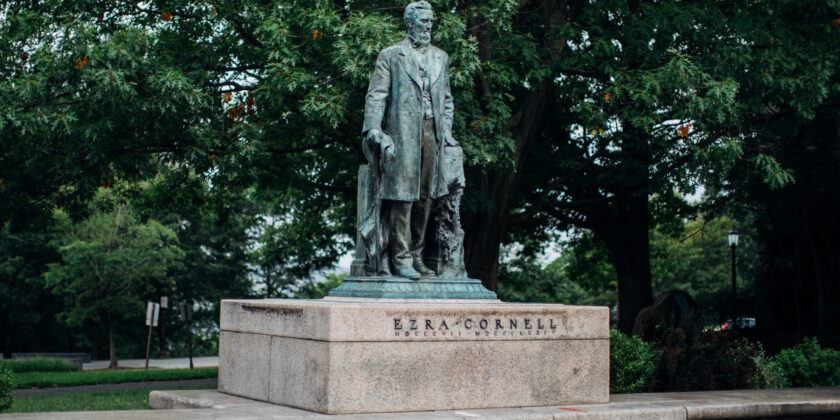
2022 Waitlist Strategy
We predict big waitlists again this year.
Are you on one? Reach out for individualized advice, and keep reading below!
For an example letter, please subscribe to our blog (link below) and email us
Getting admitted from the waitlist is not easy. However, it is possible with a viable strategy and some persistence. Although we do not suggest being overly optimistic, here are some of the strategies that have worked.
First, get familiar with the WL data from past years. How many students are offered spots on the WL? How many accept their spot, and more importantly, how many does school X ultimately admit? Some of these numbers are dismal, but it is best to know what you are up against. Look at the Common Data Set first (http://www.commondataset.org/). A few other sites to review:
Before implementing waitlist strategies (below), it is important to deposit at a current top choice school (a school where you have been admitted) and get excited about the prospect of attending. Take advantage of admitted student days and other events that connect you with potential future classmates, including joining “Class of 2026” social media groups. These forums are often very informative, fun, and can help you take your mind off the waitlist waiting game.
Once you have accepted a spot on the WL, deposited elsewhere, and familiarized yourself with the waitlist data, consider the strategies below. Not all of them are novel, but without much to lose, why not do all you can so you can look back without any what-ifs?
- Write a waitlist letter. This letter should contain information updating the school on what you’ve been up to both inside and outside of the classroom since the time you applied—but most importantly—it needs to fill in any GAPS from your original application and highlight a few specific value-adds you will bring to X campus. This is where individualized feedback can be critical.
- Consider including:
- Academic Updates: Spend some time talking about coursework and school projects, and make connections to future courses of study. You can even drop in related courses you’d like to take at school X, like those you’d include in a Why School essay, but only do this if you did not submit an essay of this type when you applied, otherwise you are being redundant and that is not well-received.
- Extracurricular Updates. But only if significant and can be connected to how you will add value to the school where you are deferred. This includes school and non-school clubs, service commitments, and/or other leadership experiences you can highlight. Like the academic paragraph(s), making connections to similar opportunities you plan to undertake in college can be helpful additions. For example, if you talk about a new project you spearheaded as VP of your school’s Interact Club, you may want to include that you hope to lead a similar project within a specific club or group at school X. Being very specific is important.
- The additional ways you have connected with and continued to get to know school X since you applied. This could include setting up an informational interview with a local alum, a current student, reaching out to your local regional alumni group (more on this below), or continuing to connect with your regional rep via email.
- Make sure you read and follow any specific WL directions that are shared with you. You might be asked to send updates to a specific WL manager, or upload them on your applicant portal. If you previously connected with your rep (you should have at the beginning of the process), reach back out and ask them if they have any advice for you as a waitlisted candidate. Keep this line of communication open; do not send updates every week, but stay in touch to continue to demonstrate interest.
- Ask your guidance counselor to call the admissions office and advocate for you, as well as provide any additional information they may have that will support your candidacy. Ask them to back up what they say on the phone in an email if they have time. Make sure they send updated grades/transcripts promptly. Your grades should have remained the same or gotten better, not dipped.
- Obtain and have an extra letter of recommendation sent, but only if the school welcomes extra LORs. A teacher, coach, or someone else close to you who can speak to your potential contributions to the university could draft this letter. Some schools explicitly state on their WL docs they do not welcome or want extra LORs; if that is the case, don’t send. *Side note on alumni letters and letters from well-known and or famous people. Many students ask if these are helpful to send, and the answer is no unless the person knows well you or they are a very high-level donor with solid connections to admissions (even then, why count on someone else?). If you think that a big name vouching for you will help, it generally doesn’t as a stand-alone factor, and officers can see through these often brief and less than meaningful notes.
- Worth saying again: Make sure you follow any directions they provide!
Additional strategies…
- Check if school X has a local alumni group (Google search) and if so, reach out to them and ask if there is anyone willing to meet with you via Zoom for an informal informational interview. Use this meeting as an opportunity to learn more about the school, as those learnings might be good fodder for a WL update.
- Use social media to your advantage. Don’t be afraid to follow your WL school on TikTok, Instagram, or other social channels to connect. Don’t forget to open all email correspondence from the school, as schools track opens/clicks as interest.
You don’t need to…
- Show up on campus or engage in other over-the-top moves that you think will make an impact. They won’t. Please understand that this type of behavior is not appreciated or welcomed.
More questions about the WL? Email us!
*Stay in the know! Subscribe*

Start Now: College Counseling for High School Juniors
We’ve seen too many students wait until the summer after 11th grade to try to develop and implement the strategies needed to tackle the college application process successfully and with ease. Often, there is just not enough time to do the pre-work that results in the most effective essays, outreach, and positive admissions outcomes.
The best time to start? Now.
Juniors, right now you can:
- Develop relationships with admissions officers and regional reps (the people who make key decisions on your application) as well as current students and faculty (we can fill you in on why these connections are so important)
- Open up a Common App account to get familiar with the system + complete the base data
- Make the best of campus visits and leverage contacts at colleges on these visits
- Craft a preliminary college list that maximizes the 5+ application plans colleges now use
- Start brainstorming for the Common App essay (the MOST important essay of most apps)
We hate seeing the second half of junior year go to waste!
Contact us today to discuss what you can do now to always stay a step—or three—ahead of the game.
We are also co-hosting a free online event on March 14th at 8pm eastern. Join us to hear top tips and effective strategies for the college process + ask us anything in the live Q&A! Register today!
*Stay in the know! Subscribe*

Free Event – Majors to Careers: Business
Exploring majors? Considering studying business? Join us to hear different viewpoints about studying and working in business – featuring current college students, career counselors and alumni in the field, as well as admissions professionals from Coalition schools. Come with your questions to this interactive panel discussion, and stay for a college fair to explore opportunities at a variety of Coalition schools.
Panel Discussion (7 to 7:45 p.m. ET)
Featuring admissions officers from Indiana University Bloomington, University of Michigan, and University of Notre Dame, along with student, alumni and career counselor perspectives.
College Fair (7:50 to 9 15 p.m. ET)
SESSION A. 7:50-8:30 p.m. ET
Room 1: Florida Southern College, Indiana University Bloomington, Skidmore College
Room 2: Southern Methodist University, University of Michigan, York College of Pennsylvania
Room 3: Maine Maritime Academy, Ramapo College of New Jersey, University of Notre Dame
Room 4: Johns Hopkins University, North Carolina State University at Raleigh, University of Dayton
Room 5: Hope College, Texas State University, Washington University in St. Louis
SESSION B. 8:35-9:15 p.m. ET
Room 1: Chatham University, St. Edward’s University, University at Buffalo
Room 2: Case Western Reserve University, Marquette University, University of Connecticut
Room 3: James Madison University, University of Massachusetts – Lowell
Room 4: Binghamton University, Lycoming College, University of South Carolina
Room 5: Lehigh University, UNC Charlotte, University of Vermont
Register
Consult the schedule above, then make your selections here.
Please note: Coalition schools may be in touch with you following the event based on the information you provide here.
Please check your email (bmaschal@gmail.com) for the links to join the opening panel as well as your selected fair sessions.
In the meantime:
- Invite a friend to join you at Coalition events! Share this link.

News of the Week!
UC extends the application filing period. Effective beginning with the fall 2023 admissions cycle (applicants filing in 2022), the University of California has changed the application filing period. The new filing period will be October 1 – November 30. Note: the deadline will not change. Allowing students to submit their application as early as October 1 [note: please submit apps early] could ease some of the pressure students normally feel at the end of the year, as well as those worsened by the pandemic.
But also…
Thousands of prospective students may be denied admission to the University of California, Berkeley, after a judge ordered the institution to freeze enrollment amid an ongoing legal dispute with a local community group over the environmental impact of a proposed expansion plan. The order to freeze enrollment at UC Berkeley was handed down in August by an Alameda County Superior Court judge in response to a lawsuit brought by a local group called Save Berkeley’s Neighborhoods, which has been organizing around this issue since 2018. The University of California Board of Regents appealed the decision and asked the court to stay the order to freeze enrollment while the appellate process plays out. That request was denied last week. Now regents are appealing to California’s Supreme Court.
Navigating the road to admission: As the landscape changes in admission, some high school seniors wonder how they were denied admission at their local university, which two years ago would have been a “sure thing.” Parents ask how Northeastern University has a lower early acceptance rate than Harvard University. Meanwhile, colleges use enrollment tactics that are not always student-centered. One example is the practice of deferring students’ early applications and then to be a competitive candidate encouraging them to convert to a binding Early Decision plan, only to deny the student admission in the end. Read more about these college admissions truth bombs.
Does calculus matter too much in admissions? We think so.
The U.S. House of Representatives approved an amendment to add the College Transparency Act to another bill, which the House then passed. The result will be much more information made available about how colleges perform at educating students.
*Stay in the know! Subscribe*

Three Messages Parents of High School Students Need to Hear About College Admission
Read Rick Clark’s full post on the Georgia Tech admissions blog! In part, here:
—
I’m convinced there are a few messages most parents of high school students need to hear—and hopefully will listen to also.
Pronouns Matter. As your kids enter and move through high school, and especially as they are applying to college, I hope you will be cognizant of your pronouns. If you find yourself commonly saying things like, “We have a 3.8,” Pre-Calc is really killing us this year,” or “Our first choice is ___________,” it may be time to take a long walk, a deep breath, or a stiff drink. Ask yourself if those pronouns are just a reflection of your love and years of intimately intertwined lives, or if they are a subtle prodding to step back and let your student demonstrate what you know they are capable of handling.
As you well know, parenting is a delicate dance that becomes increasingly complicated as kids get older. Be honest with yourself and pay attention to when it’s time to take the lead or step back. Interestingly, it was current Atlanta Mayor (and former Georgia Tech staff member) Andre Dickens who introduced me to the concept of moving from parent to partner with a presentation he used to give at new student-parent orientation. And that should be your focus as your kids move closer toward graduation from high school.
As a parent, I understand this is not easy. But don’t lose sight of the ultimate goal. “College Prep” is not simply about academics, and we should be focused on ensuring our kids are socially, emotionally, and practically prepared, regardless of where they end up going to college. Watching your pronouns is a great place to start.
College admission is not fair. However, in contrast to what most people think, it is easy to understand. Admission is driven by two fundamental rules:
- Supply and demand. The Applicant to Class Size ratio drives admit rates. If applications go up and enrollment does not, the admit rate drops.
This is why you hear about Younger Sibling not getting into University of X (Home of the Fighting X’s) with the same, or even better high school grades and classes, than Older Sibling (a current junior at X with a 3.4 GPA). Three years have passed, U of X’s new first-year class size is the same, but this year they receive 5000 more applications than the year Older applied. Could Younger do the work? 100%. Is Younger talented, ambitious, and very interested in going to University of X? Without question. Is this fair? Nope, but it is logical.
- Mission drives admission. As we just established, Older is a good student and a good person (3.4 GPA in college and very active on campus). But three years ago, when she applied as a high school senior, there was another candidate vying for admission—Applaquint. “App” had better grades, better classes, better writing, and more community involvement (all the things U of X says it values) than Older. App, however, was denied.
Why? Well, it happens that App is from Y (the state just to the east of X). Because University of X is a public school, students from the state are admitted at 5 times (would have been too confusing to say 5x) the rate of non-Xers. Fair? No! Again, App is smarter, nicer, and better looking than Older. But again, totally logical.
College brochures may make all campuses look the same, but the goals for the composition of their classes vary widely in number, geography, major, gender, and so on. So when admission committees discuss candidates, they are reviewing and considering GPA, essays, and letters of recommendation, but ultimately institutional mission and priorities are the lens and filter through which admission decisions are made.
As a parent, my sincere hope is you hear, believe, and prepare yourself for this truth- neither an admit nor deny decision is a value judgment or evaluation of your job as a parent. My friend Pam Ambler from Pace Academy puts it perfectly: “Admission decisions feel deeply personal, but that is not how they are made.” As a result, many parents react when their student receives disappointing admission news. They see that hurt and think they need to call the admission office (or the president or the governor), appeal the decision, “come down there,” or pull strings. After watching this cycle repeat itself over and over, and particularly as my own kids grow up, I’ve come to appreciate ALL of that comes from a place of deep and genuine love. But ultimately, in these moments what kids need from you is very simple—love, concern, empathy, belief, and encouragement, or sometimes just a heartfelt hug.
College Parents > HS Parents. When your kids were little and you were struggling with potty training or getting your baby to sleep through the night, did you seek advice and insight from other parents in the same chapter? No! Because they were either a: just as clueless or frustrated as you were b: maddeningly oblivious c: prone to lie, exaggerate, or hide the reality of their situation.
The same is true when it comes to college admission. Other parents with kids in high school often have just enough information to sound informed but frequently serve to proliferate inaccuracy and consternation– “You know the valedictorian three years ago did not get into….” and “It’s easier to get in from (insert high school three miles away), because they don’t have IB like we do.” Generous generalizations and liberal rounding phrases like, “he has mostly As and Bs” or her SAT is “around a 1400″ should send your BS radar way up in cases like this. Walk away, my friends. Dismiss, change the subject, and don’t let those comments stress you out.
The bottom line is parents of high school students should talk to fewer parents of high school students about college admission, and more parents of current college students, or recent college graduates. These folks, who are one chapter ahead, invariably provide perspective, levity, insight, and sanity. They are far less prone to exaggeration, and in fact often incredibly raw and honest in their evaluation. “She was crushed when she did not get into Stanvard. But now she’s at Reese’s U and is not sorry.” Or “We didn’t get the financial aid package we needed for him to go to Enidreppep University, so he ended up at QSU. He graduates this spring and already has a great job lined up with the company where he’s been interning.” Again, seek perspective, levity, insight, and sanity from parents of current college students, and spend your time talking to parents of other high school students about the upcoming game or recently opened restaurant in your area.
Thanks for reading. Thanks for listening. And stay tuned for upcoming podcasts and blogs with a few more key messages for high school parents coming soon…
If you have friends who not won’t read 200+ pages, but are likely not even ready 1000+ words, you can send them to my original Twitter thread with these messages for parents.

(Late) News of the Week!
Harvard, Yale, and other Ivies report near-record numbers of early-admission applications…and on another planet (New Jersey), Princeton joins a small group of schools not releasing admissions data, citing impact on applicants’ anxiety. Side note: This is not how to solve anxiety around college admissions.
Harvard extended its test-optional policy for four more years. But the main reason Harvard and its counterparts are dropping the test is that it’s in their interest to do so.
A news flash? Binding admission offers do not, in fact, oblige you to attend. If you can’t afford to go at the price that the college has asked you to pay, you can back out.
*Stay in the know! Subscribe*

Merit Money Deadlines for ’21-’22 App Cycle
College Kickstart helps you track those merits $$ deadlines. Students: yet another reason to get apps in EARLY! We suggest submitting as many RD apps as you can by 12/1.
To help you stay on top of free money opportunities for your students, they’ve compiled a list of popular schools with hard merit deadlines for the 2021-22 cycle.
For each school listed, they’ve included the stated deadline, as well as the percentage of students receiving merit aid, the average amount of aid awarded and a link back to the school’s merit scholarship page.
Get there now!
*Stay in the know! Subscribe*

“Best of the Best” Colleges & Universities for LGBTQ Students
Campus Pride’s 2021 BEST OF THE BEST Colleges & Universities is online at https://campuspride.org/
Campus Pride, the preeminent resource for LGBTQ leadership development, diversity inclusion and advocacy within higher education, recently announced the annual Best of the Best Colleges and Universities for LGBTQ students in the United States.
“More than ever colleges today want to be viewed as LGBTQ-friendly and a welcoming place for all students. LGBTQ students and their safety impacts the recruitment efforts of the entire campus,” said Shane Windmeyer, Campus Pride Executive Director. “Upper-level administrators are now understanding how LGBTQ-friendliness is key to academic success of students and the future institutional success of the campus.”
The announcement features 30 four-year campuses from across the country that have shown themselves to be deeply committed to LGBTQ students, earning a perfect score of 5 out of 5 stars on the Campus Pride Index, the definitive national benchmarking tool tracking LGBTQ-friendly policies, programs, and practices.
This year, Campus Pride is putting a spotlight on two-year colleges and religious schools with two separate lists focused on community colleges that are leading the way on LGBTQ inclusivity, and religious schools living up to LGBTQ-inclusive values. These campuses were selected by the Campus Pride Index team showcasing campuses with inclusive policy, program and practice and who scored 3.5 or higher stars in their respective categories.
“Seeing the representation of schools from every corner of the country, and highlighting the efforts of community colleges and even religious institutions really underlines the successes Campus Pride has had over our 20 years,” said Tom Elliott, Campus Pride Board Chair. “The work we’ve done with student leaders, and the resources Campus Pride continues to provide them, is making the higher education experience safer and more welcoming to LGBTQ students nationwide.”
The Campus Pride Index, cataloging more than 430 LGBTQ-friendly colleges and universities, is available at https://www.

Juniors: What’s Your Story?
The start of junior year is the perfect time to determine your story for applying to college. What majors are you considering? What have you done to explore those majors? Where will you add value in college both inside and outside of the classroom? Is your value add clear on your resume?
It might seem early since you won’t be submitting apps until this time next year, but those apps are much easier to write if you’ve done some work ahead of time.
Juniors, right now you can:
- Create a testing plan and learn about test-optional admissions
- Develop relationships with admissions officers and regional reps (the people who make key decisions on your application) as well as current students and faculty (we can fill you in on why these connections are so important and set you up with a peer guide)
- Open up a Common App account to get familiar with the system
- Craft a preliminary college list so you understand the many application plans colleges now use, and why this is a critical component of a smart application strategy
- Make the best of virtual campus visits
- And of course, determine your academic narrative and “story” for your apps, and learn how this plays into one of our favorite parts of the college app process: essays!
Speaking of essays now would be a great time for juniors to grab a copy of our book, The Complete College Essay Handbook!
*Stay in the know! Subscribe*
